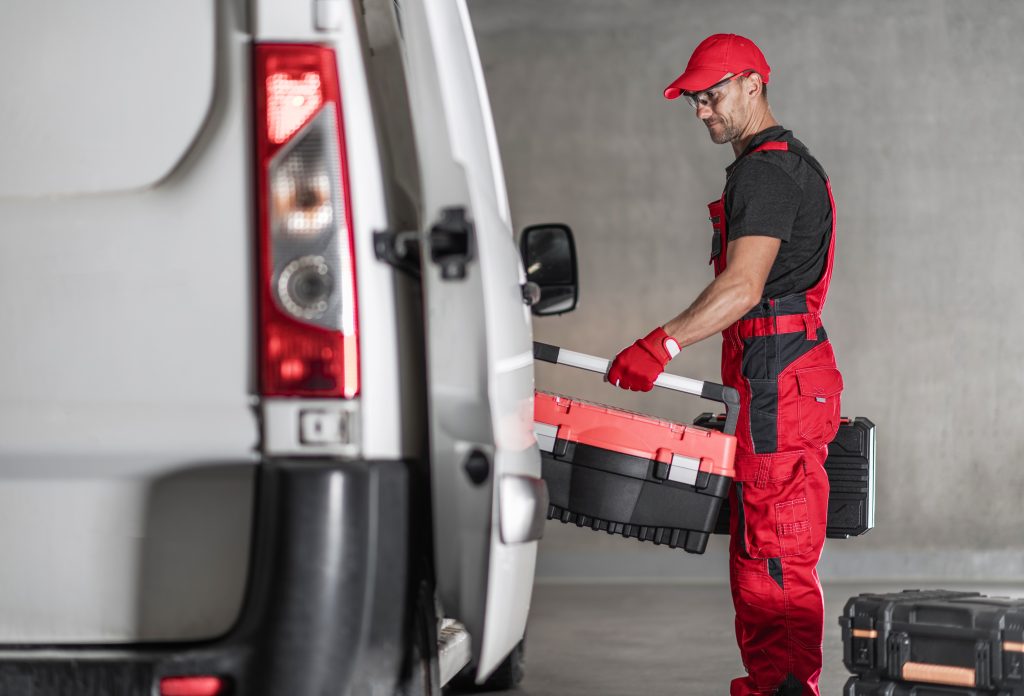No Time to Read? Here’s What You Need to Know
- Business car or personal car? If you drive a lot for work, a business vehicle could be worth it. Otherwise, claiming mileage might be smarter.
- Tax benefits: You can claim depreciation, fuel, maintenance, loan interest, and even GST—if the car is used for business.
- Buying vs. leasing: Buying gives long-term savings and ownership, but leasing offers lower upfront costs and easier upgrades.
- Financing options: Business car loans, hire purchase, and chattel mortgages let you spread the cost, but each has pros and cons.
- Fringe Benefit Tax (FBT): If the car is available for personal use, the IRD might tax it as a perk.
- Record-keeping is key: Use logbooks to track business vs. personal use and maximize deductions.
💡 Final tip: Run the numbers before committing. A business car should save you money, not drain it.

Ever feel like buying a business vehicle is just another corporate headache? One minute, you’re checking out a sleek sedan, the next, you’re buried in financing options, tax deductions, and lease agreements that sound like they were written in another language.
Here’s the thing—choosing the right commercial fleet isn’t just about picking the flashiest model. It’s about finding a smart, cost-effective way to invest in your company without blowing your operating costs through the roof. Lease or buy? New or used? What about depreciation and GST?
This guide breaks it all down. No fluff, no jargon overload—just straight-up answers on business car loans, resale value, fleet management, and the best time to buy. Plus, we’ll cover the tax benefits you can claim and how to negotiate a killer deal.
Buckle up. This might just be the smartest business investment you’ll make this year. 🚗💨
Do You Really Need a Business Car?
Buying a business vehicle might seem like a great move, but is it really worth it? Before diving into financing options, tax deductions, and fleet management, it’s important to figure out whether a company car is a smart investment or just another cost that eats into your cash flow.
Business vs. Personal Use: When Is It Worth It?
Not every business needs a dedicated company vehicle. If you’re driving a lot for work, meeting clients on the road, or hauling equipment, then owning a business car can make life easier. But if most of your driving is personal, using your own car and claiming mileage might be the smarter option.
It usually makes sense to buy through your business if:
- Most of your driving is work-related, like sales reps, contractors, or delivery services
- Your car is essential for your job, such as tradespeople or rideshare drivers
- You need a vehicle for employees
- You want to claim tax deductions on fuel, servicing, and depreciation
If business driving only makes up a small percentage of your total use, then sticking with a personal car and claiming mileage could save you money in the long run.
How a Business Car Can Help You Save on Taxes
One of the biggest reasons to buy a business vehicle is the potential tax savings. The right setup can help reduce the financial impact, but there are a few things to keep in mind.
Some expenses you may be able to claim include:
- Depreciation on the car’s value
- Fuel, maintenance, and repairs
- Loan interest if the car is financed
- GST on the purchase price if your business is registered
- Lease payments, which are fully deductible in most cases
The tricky part is that if the car is used for both business and personal trips, you can only claim the business portion. This is where fringe benefit tax comes in. If an employee (including yourself) has access to the car for personal use, it could be considered a perk and taxed accordingly.
Keeping detailed records, like mileage logs and receipts, helps you maximize your tax claims while staying compliant.
Industries That Benefit the Most from a Company Car
A business car isn’t necessary for everyone, but for some industries, it’s an essential tool.
- Sales and consulting professionals who travel often for client meetings
- Trades and construction workers who need to transport tools and materials
- Delivery and transport businesses that rely on a vehicle for operations
- Rideshare drivers who need a dedicated car for work
- Freelancers and creatives like photographers and videographers who work on location
If your business depends on driving, a company vehicle can be a smart investment. But if you only use a car occasionally for work, it might not be worth the cost.

Buying vs. Leasing: What’s Best for Your Business?
Deciding whether to buy or lease a business vehicle can feel like a tough call. Both options have their benefits, but the right choice depends on your cash flow, tax situation, and how long you plan to keep the car. Let’s break it down.
Advantages of Buying a Business Vehicle
Owning a car outright can be a solid long-term investment, especially if you plan to keep it for years. While the upfront cost is higher, the long-term savings and flexibility might outweigh the initial expense.
Some key advantages of buying include:
- Full ownership with no restrictions on mileage or vehicle modifications
- Higher resale value if well-maintained
- Potential tax benefits, such as depreciation and loan interest deductions
- No ongoing lease payments once the loan is paid off
The downside? Cars depreciate quickly, and repair costs can pile up once the warranty expires. Plus, if you finance the purchase, monthly payments may be higher than a lease.
Advantages of Leasing a Business Vehicle
Leasing is a good option if you want a new vehicle every few years without worrying about depreciation or maintenance costs. It’s especially useful for businesses that want to keep cash flow flexible.
Some benefits of leasing include:
- Lower upfront costs compared to buying
- Fixed monthly payments that help with budgeting
- Tax deductions for lease payments (if the car is used for business)
- Easy upgrades to newer models with better fuel efficiency and features
The downside? You never own the car, so you’re constantly making payments. There are also restrictions on mileage and modifications, and returning the car at the end of the lease could come with extra costs for wear and tear.

Financial Comparison: When Should You Buy vs. Lease?
Still unsure? Here’s a quick comparison to help decide what’s best for your business:
| Factor | Buying a Business Vehicle | Leasing a Business Vehicle |
|---|---|---|
| Upfront Cost | High (down payment + loan) | Low (first month’s payment + fees) |
| Monthly Payments | Higher (loan repayments) | Lower (lease fees) |
| Ownership | Yes, you own it outright | No, you return it at lease end |
| Resale Value | You can sell it later | No resale value, must return |
| Tax Benefits | Depreciation, loan interest deductions | Lease payments fully deductible |
| Mileage Limits | No restrictions | Often limited (extra fees if exceeded) |
| Maintenance Costs | You cover repairs after warranty ends | Usually covered under lease |
| Flexibility | Keep as long as needed | Easy to upgrade every few years |
| Best For | Long-term savings, high mileage, full control | Low cash flow, frequent upgrades, predictable expenses |
👉 If you drive a lot, want full control, and plan to keep the vehicle for years, buying might be the best choice. If you prefer lower monthly payments, newer models, and less responsibility for maintenance, leasing could be the better fit.
How to Choose the Right Business Vehicle
Not all business vehicles are created equal. Choosing the right one isn’t just about picking something that looks good in the parking lot—it needs to be practical, cost-effective, and suited to how you use it. Size, mileage, tax benefits, and running costs all play a role. Get this part wrong, and you could end up with a car that drains your budget instead of supporting your business.
Determine Your Business Needs
Before looking at financing or tax deductions, figure out what you actually need from a vehicle. A real estate agent driving between client meetings isn’t going to need the same setup as a tradie hauling tools across town. Think about the size, cargo space, fuel efficiency, and how many kilometers you’ll be racking up each year. If your job involves a lot of stop-and-start city driving, something compact with low fuel consumption makes sense. If you’re constantly on the highway, comfort and reliability should be priorities. For industries where a vehicle doubles as a mobile workspace, you might need custom storage, racks, or a reinforced interior.

New vs. Used: Which Is the Best Option for Tax Savings?
There’s a lot to consider when deciding between new and used. A brand-new vehicle comes with the latest tech, lower maintenance costs, and full warranty coverage. But it also loses value the second you drive it off the lot. A used vehicle, on the other hand, avoids that initial hit from depreciation, often costs less to insure, and can still be claimed as a business expense. From a tax perspective, both options have advantages. Depreciation can be claimed on both, but a new car might offer more opportunities for a higher deduction, especially in the first few years. If your business is registered for GST, you can claim GST credits on the purchase price, whether new or used. The main thing is to balance tax benefits with long-term costs—spending more upfront just for a bigger write-off isn’t always the smartest move.
Fuel Efficiency and Running Costs: Save Money in the Long Run
A cheap car isn’t always a cheap car. High fuel consumption, frequent servicing, and expensive parts can turn what looked like a great deal into an ongoing financial drain. Fuel efficiency matters, especially if you’re clocking up serious kilometers each year. Hybrid and electric vehicles are becoming more popular for businesses looking to cut running costs, and some come with extra incentives like rebates or reduced road user charges. Maintenance is another big factor. Some brands are known for high service costs, while others are more reliable and have cheaper parts. Check manufacturer warranties and servicing intervals before making a decision. If you’re financing the car, lower running costs can offset higher repayments over time.
Best Vehicle Types for Different Business Industries
One size doesn’t fit all when it comes to business vehicles. The best option depends entirely on how you use it. For trades, a van or ute with plenty of storage and towing capacity is usually the way to go. Sales reps and consultants need something comfortable, reliable, and fuel-efficient, since they’re spending hours on the road. Delivery businesses rely on cargo space and fuel economy, so a small van or fuel-efficient hatchback makes sense. Rideshare and chauffeur services need vehicles with good passenger space, comfort, and reliability, since every hour on the road is income. If your business involves a mix of city and long-distance driving, a hybrid or diesel might be worth considering.
Making the right choice comes down to balancing practicality, cost, and long-term value. A flashy car might impress clients, but if it’s burning through your cash flow, it’s not doing your business any favors. Up next: tax benefits and how to maximize deductions on your business vehicle.
Tax Benefits and Deductions for a Business Vehicle
A business vehicle isn’t just a way to get from A to B—it can also be a valuable tax tool. The right setup can help reduce your taxable income, but the key is knowing what can be claimed and how to do it properly. Getting this part wrong means leaving money on the table or, worse, running into issues with the IRD.
How Depreciation Works for Business Vehicles
Vehicles lose value over time, and that drop in value can be claimed as a business expense. Depreciation lets you offset the cost of your vehicle against your taxable income, but it’s not a one-size-fits-all system. The IRD sets depreciation rates based on the type of asset, and for vehicles, this usually falls under the diminishing value or straight-line method. The diminishing value method gives you a larger deduction in the earlier years, while the straight-line method spreads it evenly over time. If you sell the car later, there’s a chance of depreciation recovery, meaning you might have to pay tax on any gain if the car sells for more than its depreciated value.
What Vehicle Expenses Are Tax Deductible?
Owning a business vehicle comes with ongoing costs, but the good news is that many of these can be claimed as business expenses. Fuel, maintenance, repairs, and insurance are all deductible, provided they are genuinely for business use. If the car was purchased with a loan, the interest on the loan is also claimable. Registration, WOF, roadside assistance, and even parking costs can be included in your deductions. The tricky part comes when the car is used for both business and personal trips. Only the business-use percentage can be claimed, so keeping accurate records is essential.
Understanding Fringe Benefit Tax (FBT) and GST on Vehicles
Using a company car for personal reasons can trigger fringe benefit tax. If an employee, including the business owner, has access to the car outside of work hours, the IRD considers it a perk, and tax needs to be paid on that benefit. The amount is based on either the cost of the vehicle or its market value, depending on how the calculation is done. Some businesses avoid FBT by restricting personal use, but that has to be clearly documented and enforced.
GST is another factor to consider. If your business is GST-registered, you can claim the GST on the purchase price, but if the vehicle is used for both personal and business trips, only the business-use portion can be claimed. When the vehicle is later sold, GST needs to be paid on the sale price, so it’s not a free ride.
How to Claim Vehicle Expenses: Logbooks, Percentage Use, and IRD Rules
The IRD isn’t interested in estimates or guesswork when it comes to business vehicle deductions. To claim expenses, a logbook is required to track business mileage versus personal use. A logbook typically needs to cover at least three months and remains valid for three years unless usage changes significantly. If a vehicle is used solely for business, it may be classified as a work-related vehicle, which means FBT might not apply, but strict conditions must be met, such as the car being signwritten or stored at the workplace overnight.
Claiming vehicle expenses the right way means fewer headaches at tax time and ensures you get the maximum deductions allowed. Up next: how to finance a business vehicle without draining your cash flow. 🚗💸

Financing Options: How to Buy Without Breaking Your Cash Flow
Buying a business vehicle doesn’t have to drain your bank account. The right financing option can help spread the cost while keeping cash flow healthy. Whether you go for a loan, lease, or chattel mortgage, each method has its own benefits and drawbacks. Making the right choice depends on how long you plan to keep the car, how much tax you want to claim, and how predictable you want your expenses to be.
Business Car Loans vs. Personal Car Loans
A business car loan is designed for vehicles used primarily for work. The loan is in the company’s name, meaning interest payments can be claimed as a business expense. This also helps keep business and personal finances separate, which makes accounting easier. A personal car loan, on the other hand, is taken out in an individual’s name, and while you can still claim business-related expenses, you’ll need to keep a logbook to prove the percentage of business use.
The biggest difference comes down to ownership and tax benefits. With a business loan, the vehicle is considered a company asset, which means depreciation can be claimed. With a personal loan, the car is a personal asset, and only mileage or specific business-use costs can be deducted.
Lease, Hire Purchase, or Chattel Mortgage: Which One is Best?
There’s more than one way to finance a business vehicle. Understanding the differences can help avoid unnecessary costs in the long run.
| Financing Option | How It Works | Pros | Cons |
|---|---|---|---|
| Lease | Rent the car for a fixed period, then return it or upgrade to a new model | Lower monthly payments, tax-deductible lease costs, no resale hassle | No ownership, mileage restrictions, extra fees for wear and tear |
| Hire Purchase | Pay in installments while using the car, ownership transfers once the final payment is made | Fixed repayments, eventual ownership, claim interest and depreciation | Higher costs compared to leasing, long-term commitment |
| Chattel Mortgage | Loan secured against the vehicle, but you own it from day one | Immediate ownership, full tax benefits (depreciation, interest deductions), flexible repayments | Higher upfront costs, resale risk if car value drops |
How to Qualify for a Business Vehicle Loan
Getting approved for a business vehicle loan depends on factors like credit score, business income, and financial history. Lenders look at whether your business can handle regular repayments without disrupting cash flow. A higher credit score and strong financial records improve the chances of approval and can lead to lower interest rates.
Lenders typically require:
- Business financial statements showing revenue and expenses
- A deposit (if required)
- Proof of GST registration (for businesses claiming GST credits)
- Details on how the car will be used for business
Some lenders offer low-doc loans for businesses with limited financial history, but these usually come with higher interest rates.
Conclusion
A business vehicle can be a game-changer—or a money drain. Get it right, and you’re looking at tax savings, efficiency, and a solid long-term investment. Get it wrong, and you’re stuck with high costs and a car that doesn’t actually work for your business.
Buying or leasing, new or used, cash or financing—there’s no one-size-fits-all answer. The best move is the one that keeps your cash flow healthy and your business running smoothly.
Now it’s over to you. Run the numbers, test-drive a few options, and lock in a deal that makes sense. The sooner you get it sorted, the sooner your business starts benefiting.
